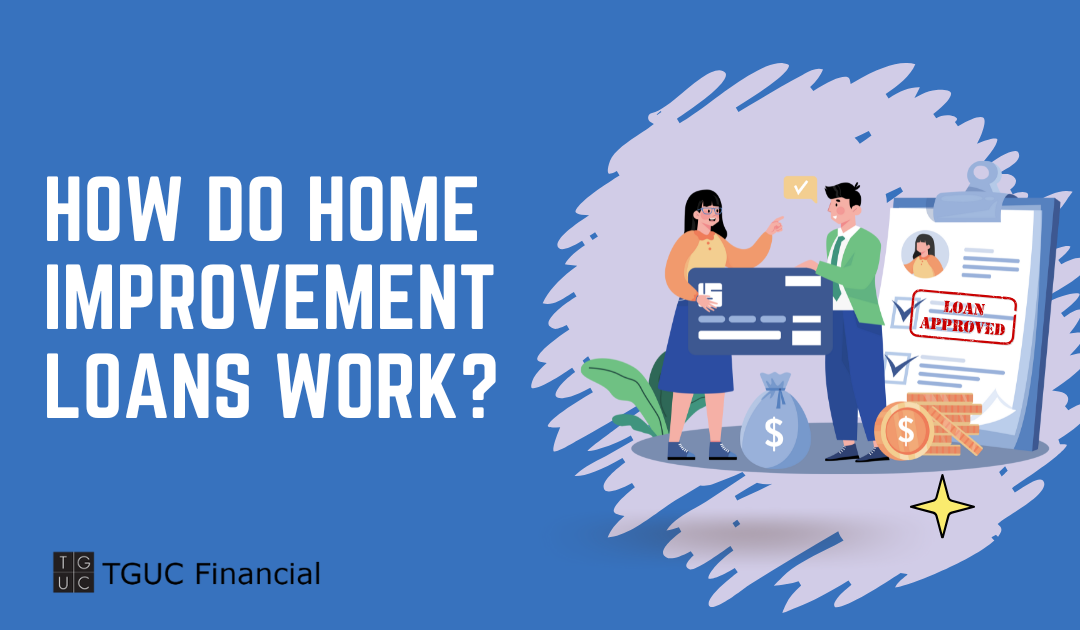Do you want to know how do home improvement loans work? Homeowners have different financing options when they plan to renovate their homes. When you hear, ‘Home Improvement Loans’, a lot of you might assume them as ‘personal loans’. But a home improvement loan doesn’t mean personal loans alone. Homeowners have several loans and grant options available for home improvements.
The secured loans and unsecured personal loan options are the two financing options a homeowner would choose while borrowing amounts for home improvements. Secured loan options are cash-out refinance, home equity loan, and home equity line of credit that allow homeowners to borrow money with many requirements. In this article, let us look into the types of home improvement loans and requirements for home improvement loans.
Best Way to Get a Home Improvement Loan
A homeowner should analyze the types of loans and repairs necessary while applying for the loans. For instance, if you are remodeling your home you may find best that a certain type of loan applies. But if you need repairs, especially such as roofing and plumbing, you may find it is best to explore alternate loan types. Many homeowners apply for a financing option for home improvements without realizing this. Home improvement loans work better to increase value of your home.
When you apply for a home improvement loan, you should check the limitations and requirements to make the improvements within your budget. Getting a loan to renovate a house is not a difficult task, but homeowners should understand every type of financing option.
How Do Home Improvement Loans Work
Secured Loans

Secured loan options for home improvements will allow homeowners to do repairs by making the home as collateral and evaluating other financial assets. Here are some secured loan options that a homeowner can borrow from when considering their existing mortgage and assets.
Cash-out Refinance
Borrowing money for home improvements in cash-out refinance works with the replacement of the old mortgage with a new one. Homeowners will decrease their monthly payments by refinancing the mortgage. Changing the terms of the loan is also one of the advantages of cash-out refinance.
Financing Home Repairs with Cash-out Refinance has many other advantages. Each lender sets its own requirements when it comes to refinancing. With a cash-out refinance, you are getting cash for a fraction of what you would have paid for interest.
Application Process
In the cash-out refinance option, it will take 45 to 60 days to complete the process. A homeowner should make their documents ready to accelerate the process. Homeowner’s insurance, alimony, bank statements, and contact information are the documents that are significant to apply and accelerate the process. Apart from that, a homeowner should also have an explanation letter if there are any gaps in employment and issues in credit.
Home Equity Loan
A home equity loan makes your home collateral and allows you to borrow the money. A homeowner should at least have an 85% percentage of equity in the property to get qualified for home equity loans.
A homeowner has to borrow a lump sum in the home equity loan. If the homeowners borrow a lump sum, they should pay the higher interest rates. A homeowner with debt and a low credit score will not be able to borrow home equity loans.
Application Process
Homeowners should check their financial situation and stability before applying for home equity loans. The credit score also comes into the requirements for equity loan application. Here are some points a homeowner should check for the equity loans application process.
- Gather your various income sources and document them to apply for home equity loans.
- Have a credit score of 620 or above.
- Employment history is significant. Homeowners seeking these type of loans will be required to provide the contact information of an employer.
- Presenting the debt information and valuation of the home will help you get the application process resolved soon.
Home Equity Line of Credit
A home equity line of credit allows you to borrow money with lower interest rates. Like a home equity loan, a home equity line of credit will require the equity percentage. If a homeowner has a steady income and financial assets, they can choose a home equity line of credit.
Application Process
The application process of a home equity line of credit is similar to a home equity loan. The homeowners should check the credit score before applying. Here are a few requirements for the application process:
- Homeowners should have a 40% of debt-to-income ratio.
- The home value should be 15% more than the homeowners owe.
- The HELOC(Home Equity Line of Credit) application process will take from 2 to 4 weeks.
Unsecured Personal Loans

Unsecured personal loan option doesn’t require collateral like secured loans. If you are borrowing unsecured personal loans, you need not worry about equity percentage. However, some personal loan lenders will ask for a good credit score for security. Sometimes, secured loans are riskier for borrowers such as foreclosure. But, a borrower will not have any risks while borrowing unsecured personal loans.
To secure funds, you are not required to leverage any of your assets in an unsecured personal loan. Homeowners may receive the loan approval faster if no assets need to be evaluated.
Application Process
How to Qualify for Home Improvement Loan
The application process of unsecured personal loans differs from one lender to another. Here are a few common requirements for an unsecured loan:
- Homeowners should check income sources and document them for verification.
- Personal loan lenders will consider the debt to income ratio while lending loans to the homeowners.
- Since personal loans don’t have assets as security, the credit score is a significant factor when applying for personal home loans. Even if you have a low credit score, TGUC Financial will provide you the amount for home improvements. Homeowners can borrow upto 100k and the application process in TGUC Financial is easier and quicker compared to the other personal loans.
Summing Up
Borrowing money for a home improvement project will benefit homeowners in increasing the value of the home. Before applying for a financing option, homeowners should check the requirements of both secured and unsecured loan requirements.
If a homeowner has various income sources, equity percentage, and a good credit score, a secured loan is the best financing option. On the other hand, unsecured personal loans are less risky. Homeowners will not have risks like foreclosure. While borrowing an unsecured home improvement loan, a homeowner need not worry about credit score and equity percentage. In a nutshell, homeowners should check the type of renovations and requirements before applying for a financing option. For the question ‘How do home improvement loans work?’, the right answer is choosing the suitable financing option.
Suggested Reads
- Why Should You Use Home Improvement Loans?
- How to Qualify for the Higher Home Loan?
- What is a Personal Home Improvement Loan? When Shoulde You Use it?
- How to Increase the Value of a Manufactured Home?
- How to Get Approved for a Higher Home Loan for Repair?
Frequently Asked Questions
1. Is it hard to get a home improvement loan?
Secured personal loans are a bit harder to get since they have a lot of requirements like credit score, equity percentage, and sources of income. On the other hand, borrowing an unsecured home improvement loan is not very difficult. Homeowners don’t have to worry about risks like foreclosure and the application process of unsecured loans is easy.
2. Can I use a Home Improvement Loan for anything?
Homeowners can use a personal loan for painting and to buy luxury items other than home repairs. On the other hand, FHA (Federal Housing Administration) loans for home improvements have limitations and you cannot use them for other purposes for home other than repairs.
3. Can you get a home improvement loan by using your mortgage?
Homeowners can borrow the extra money on the mortgage. It is one of the common ways to fund home improvement projects.


Recent Comments